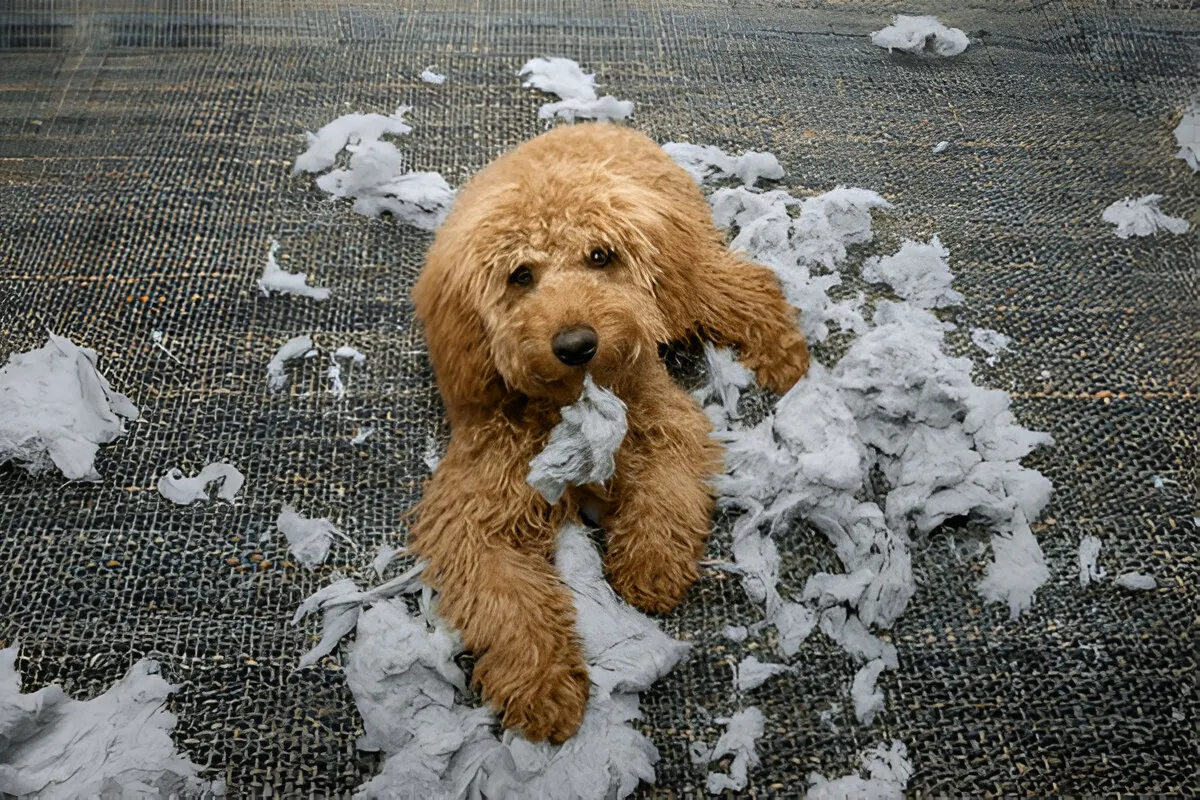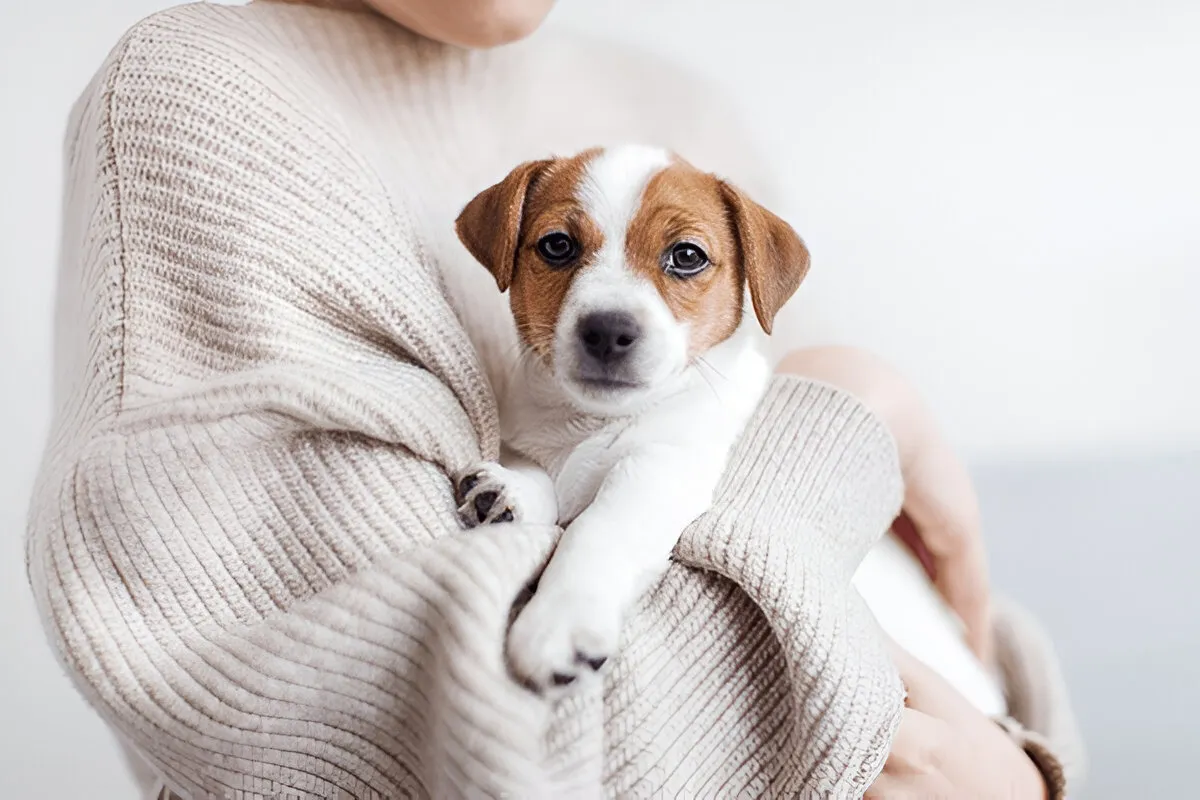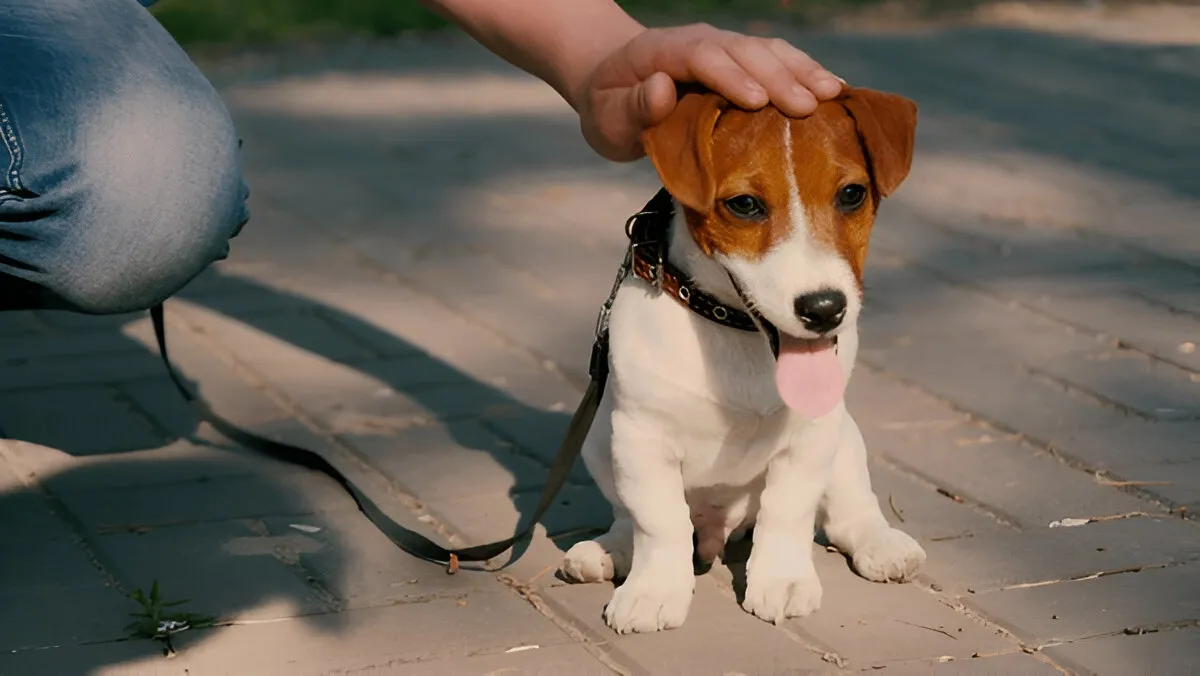
Having a puppy in Chicago can be exciting. But let’s be honest, it is not some kind of fun. Chicago is surrounded by places full of dog-friendly patios and parks. Local pet parents still encounter some common puppy behavior issues. Chicago life adds its own set of challenges and if you’re raising a new pup here, you’re probably nodding already.
From unpredictable weather to city noise to constant foot traffic, puppies in Chicago face more than just growing pains. These everyday struggles are part of the puppy behavior problems in Chicago that many new dog owners face. As a dog owner, it’s helpful to understand these issues.
What Are the Most Common Puppy Behavior Problems in Chicago?
Most Chicago owners struggle with chewing, biting, jumping, barking and anxiety. These puppy behavior problems in Chicago aren’t unusual, but city life tends to magnify them. These issues are common in all puppies.
But in urban areas, these can become worse than this. Chicago’s hustle, noise and confined spaces result in more stress and make training more urgent. You are not the only one who is facing these challenges.
Let’s go through them one by one.
1. Chewing Everything in Sight
One minute you’re scrolling your phone, the next you hear that crunch. And it’s not a chew toy—it’s your favorite shoe. Chewing is a common puppy behavior problem in Chicago homes.
Chewing is normal for puppies, especially during teething, but Chicago homes (and apartments) often don’t have a ton of space. That means fewer places to hide your stuff and more temptation for your curious pup. Cords, shoes, even chair legs—they’re all fair game in your dog’s eyes.
What You Can Do
Buy new toys for your dog, change them out to keep things fresh and block off areas where valuables live. Freeze a washcloth and let them gnaw on that to soothe their gums. And don’t forget: redirect instead of scolding.
2. Biting Hands, Feet…You
This one’s tough. You go to pet your puppy and—ouch! Those tiny teeth are sharp.
Puppy biting is normal and mostly common in all puppies. But it should be stopped early in the city like Chicago, where pups are constantly interacting with people, dogs and new environments.
Trainer methods suggest teaching bite inhibition early. Yelp like a littermate if they bite too hard, then pause play. Over time, they’ll learn what’s too much. And if you’re in a multi-dog building, good manners go a long way.
3. Jumping on Everyone—Neighbors, Guests, Strangers
Let’s be honest—when a small fluffball jumps, it’s cute. But when your dog is 40 pounds and launching at your mail carrier? Not so much.
Jumping is one of the most common puppy behavior problems in Chicago. With so much foot traffic and social interaction, the stimulation is constant. Try these tips to stop jumping if your pup just can’t help it.
The fix?
Consistency. Train a solid “sit” and reward your dog when they stay down instead of jumping. Ask friends to help reinforce this, too—Chicago folks are usually game to help if they know it’s training-related.
(Side note: If you haven’t started with the basic commands yet, that’s a great place to begin.)
4. Loud, Constant Barking
Chicago isn’t a quiet place.
A few puppies bark at the corridor sounds, others bark at individuals outside, or just bark because they’re bored. In a city, this can become a serious problem, especially when you have neighbors nearby.
So, how do you stop the noises?
Start with crate training and give your dog their own space. Use puzzle toys, play games, or take sniff walks to keep them active.
5. Anxiety (Especially When You’re Gone)

Let’s talk about separation anxiety, because it’s real—and way more common in city dogs than people think.
In Chicago, where people work long hours or live in high-rises with limited access to outdoor time, anxiety kicks in quickly. Your puppy might howl, pace, or destroy stuff while you’re away.
Local vet advice suggests a mix of behavior training, puzzle toys and slow departures to ease the stress. For more serious cases, professional support from a trainer (like Prestige Dog Training, one of the top-rated local options) is the best.
Puppy Problems in Chicago Are Unique
Chicago has more noise and people than the countryside. There’s always activity, traffic noise, limited backyard space, unpredictable weather, and neighbors who aren’t always dog lovers—factors that highlight just how unique puppy training in Chicago can be.
But here’s the upside: your puppy gets exposure to tons of people, other pups and new experiences. That can actually build a strong obedience foundation if you handle the behavioral issues early on.
The key is knowing when to be patient, when to step in and when to get help.
What’s the best way to handle puppy behavior problems in Chicago?

Early puppy training in Chicago, redirection, and consistency are the best strategies to deal with puppy behavior problems in Chicago.
Here’s a quick rundown:
- Chewing? Teething toys and redirection.
- Biting? Bite inhibition games and play breaks.
- Jumping? Teach “sit” and reward calm greetings.
- Barking? Control stimulation and give mental outlets.
- Anxiety? Use a crate, don’t rush out, and get help if needed.
And always keep in mind: you don’t have to do it alone. Programs like Prestige Dog Training offer local help tailored for city dogs. Whether it’s group dog training classes or private dog training classes, having support always reduces stress for both of you.
Want to Prevent These Issues Early?

If you’re still confused about when to start, here’s a helpful guide on puppy training basic commands that every Chicago puppy should know.
Don’t wait for problems until they get out of hand. Work on them early, stay kind and enjoy the journey.
Conclusion
You’re not the only one dealing with puppy behavior problems in Chicago. It’s normal! City life brings out the best and the most chaotic sides of our furry friends.
But with early training, the right dog training techniques and a little help from pros like Prestige Dog Training, you can build a balanced puppy that thrives in the Windy City.
So, hang in there, breathe through the barking, hide the shoes and keep showing up. You’ve got this.



